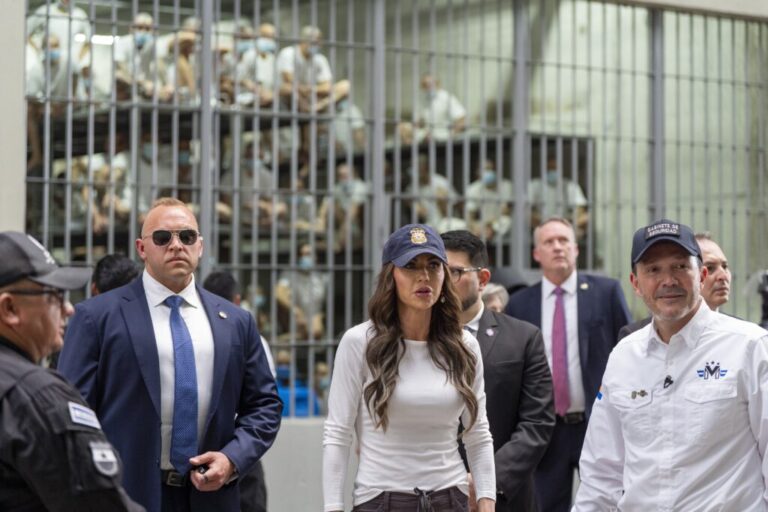Judge Finds Trump Administration in Contempt Over Deportations to El Salvador
On March 26, 2025, a federal judge determined that the Trump administration had violated a court order by continuing deportation flights of Venezuelan immigrants to a prison in El Salvador. U.S. District Judge James Boasberg in Washington outlined his concerns in a detailed opinion, resulting in probable cause to charge the government with criminal contempt.
Overview of the Case
Judge Boasberg issued a ruling mandating the cessation of deportation flights on March 15. Despite this order, flights continued, and two planes landed in El Salvador shortly thereafter. The judge’s ruling stems from President Donald Trump’s invocation of the Alien Enemies Act of 1798 to deport over 200 Venezuelans and others suspected of gang affiliations to the Centro de Confinamiento del Terrorismo (CECOT), a mega-prison in El Salvador.
Details of the Court’s Findings
In his 46-page opinion, Boasberg provided a comprehensive history of the case. He ordered government officials to either comply with the court’s instructions or identify the individuals responsible for the disobedience. The judge articulated that the government needed to “purge its contempt” by adhering to the court’s order that would allow the affected individuals to contest their deportations.
Government’s Noncompliance
Despite the judge’s order, the government allowed flights to proceed, showcasing a “willful disregard” for judicial commands, as Boasberg noted. He asserted that the federal government’s actions displayed a blatant defiance of the court, and highlighted social media comments, including one from Secretary of State Marco Rubio that mocking the judge’s order, further contributing to the perception of governmental obstruction.
Legal Proceedings and Ramifications
In response to the judge’s initial rulings, the Trump administration sought to challenge the order, which led to an appeal at the Supreme Court level. On April 8, the highest court ruled that while the administration could use the Alien Enemies Act for deportations, it was required to provide those deported with an opportunity to contest their cases.
Concerns Over Deportations
Many families and attorneys representing those deported have contested the government’s claims regarding gang affiliations. They argue that many affected individuals were misidentified based on tattoos and had no prior criminal history. Among these individuals was Kilmar Armando Abrego Garcia, whose removal drew particular attention as he was under a protective order from an immigration judge due to potential risks from gang violence in El Salvador.
Conclusion
Judge Boasberg’s ruling underscores the complexities and legal challenges surrounding immigration enforcement and deportation procedures. As the government faces scrutiny over its compliance with court orders, the ongoing situation raises significant questions about the intersection of immigration policy, judicial authority, and human rights protections.


